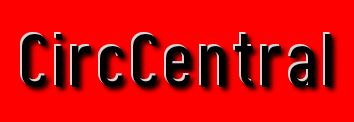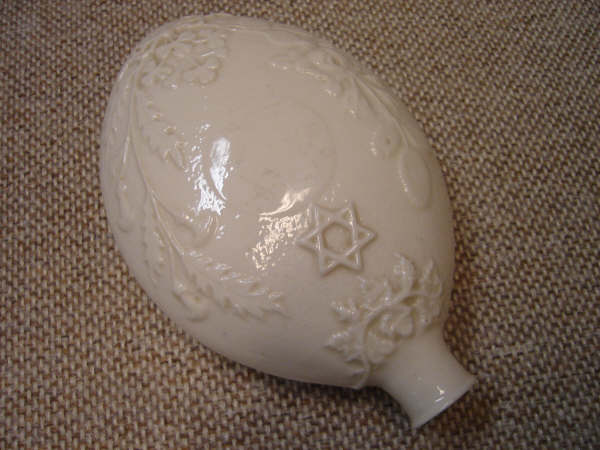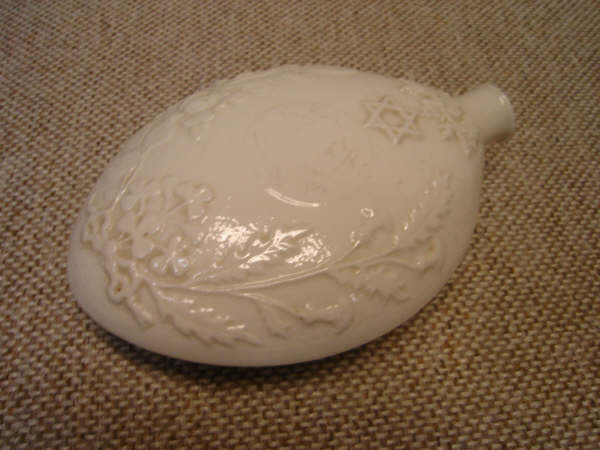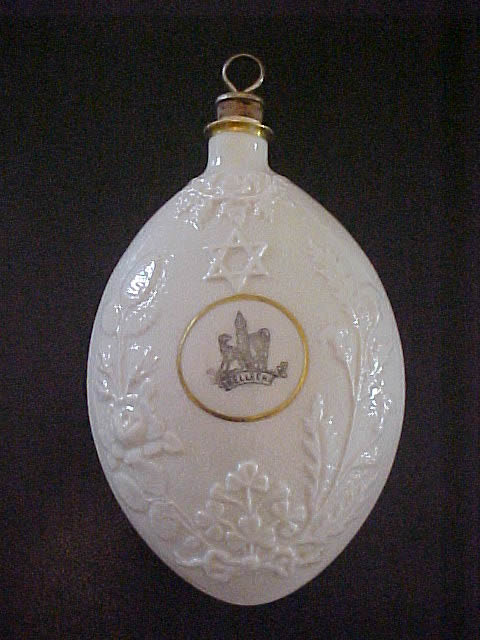 The item on
the right appeared on an auction web site as a drinking flask
from the 1880s. The auction site claimed the flask was
made for the Jewish community in Dublin for fundraising.
Note the stopper and the Belleek emblem in the center.
The item on
the right appeared on an auction web site as a drinking flask
from the 1880s. The auction site claimed the flask was
made for the Jewish community in Dublin for fundraising.
Note the stopper and the Belleek emblem in the center.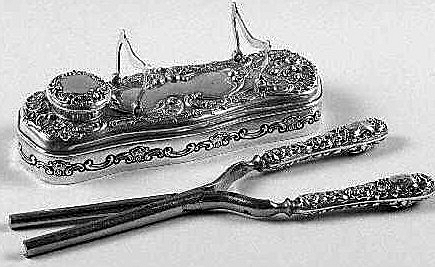 Addendum:
the information above as provided by the eBay seller
is incorrect. The item is really a curling iron
heater. To the right is an example by Gorham Silver.
Addendum:
the information above as provided by the eBay seller
is incorrect. The item is really a curling iron
heater. To the right is an example by Gorham Silver.Thanks to Alex Peck for this information.
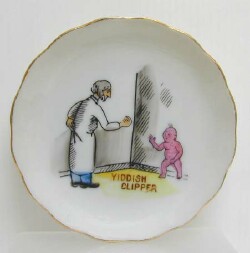 This small
plate has a cartoon with the caption YIDDISH CLIPPER. Is this supposed to
be funny? Is it anti-Semitic? Or is it a gift for
a mohel? If you know the answer, please contact me.
This small
plate has a cartoon with the caption YIDDISH CLIPPER. Is this supposed to
be funny? Is it anti-Semitic? Or is it a gift for
a mohel? If you know the answer, please contact me.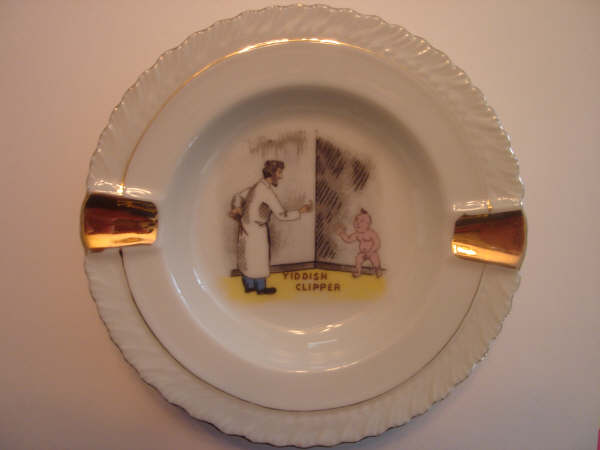 The ashtray has the same cartoon
as the plate above. The seller claimed that the item is
from the 1930s.
The ashtray has the same cartoon
as the plate above. The seller claimed that the item is
from the 1930s. 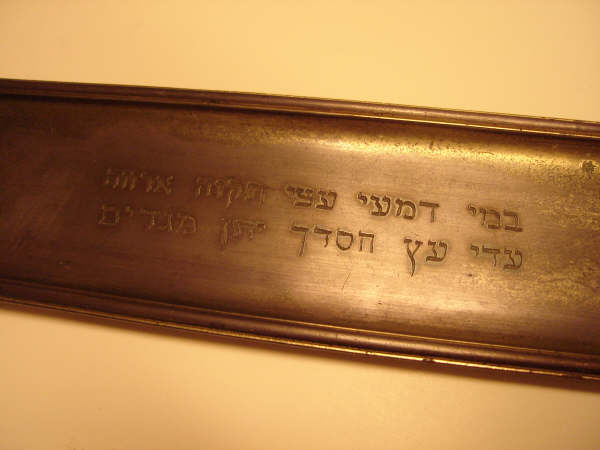
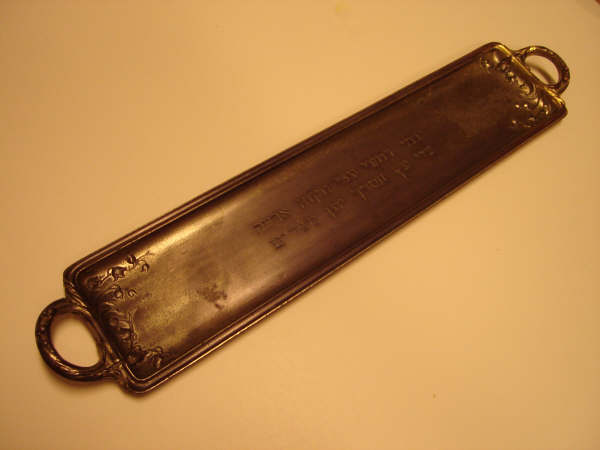 According to the Israeli vendor, this is a pewter
tray to hold circumcision tools. It is from Austria,
late 1800s.
According to the Israeli vendor, this is a pewter
tray to hold circumcision tools. It is from Austria,
late 1800s.A reader suggested that this tray was used to hold coins for the pidyon ha-ben (redemption of the first born son).
 The
auction house did not make a definite claim that this
knife was used for circumcisions. Nevertheless, the
blade's shape suggests so. The handle is marked
"F&B Sterling" (Foster & Bailey, Providence, Rhode
Island).
The
auction house did not make a definite claim that this
knife was used for circumcisions. Nevertheless, the
blade's shape suggests so. The handle is marked
"F&B Sterling" (Foster & Bailey, Providence, Rhode
Island).Addendum: it seems that this is an ink eraser, as seen in this 1902 silver catalog.
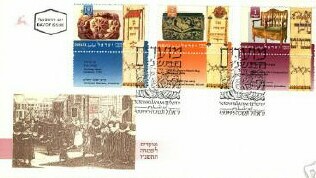 The far-right stamp on this first day envelope
cover depicts a circumcision chair. The chair is on
display at the Israel Museum.
The far-right stamp on this first day envelope
cover depicts a circumcision chair. The chair is on
display at the Israel Museum.The chair is divided into two parts. One part is the kisay shel Eliyahu (seat of Elijah), where the child is placed first. The second part is for the sandek, the person who holds the child during the circumcision.
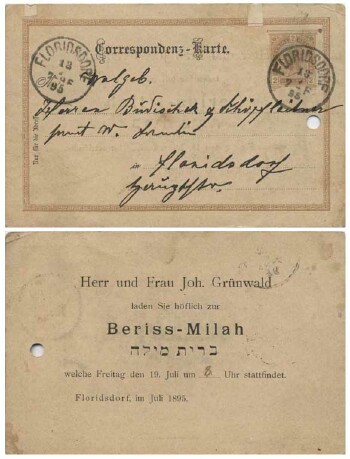 This is a brit milah invitation
dated July 19, 1895. The circumcision took place in
Floridsdorf, a suburb of Vienna, Austria.
This is a brit milah invitation
dated July 19, 1895. The circumcision took place in
Floridsdorf, a suburb of Vienna, Austria.The next section is very informative. You will learn how to distinguish real Judaica from fakes. Click the button at the bottom of this page to proceed.
